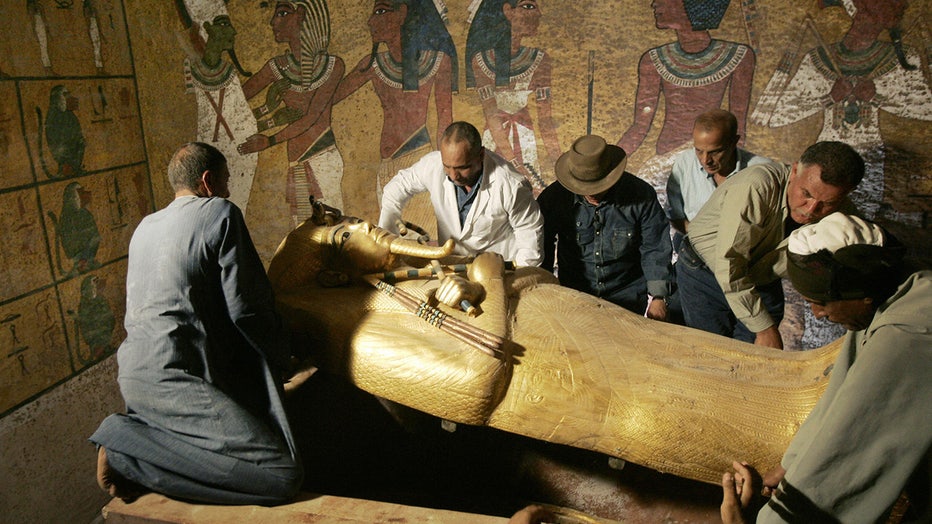Mummy discovered may be ‘oldest and most complete’ ever found in Egypt

Egypt unveils renovated Avenue of the Sphinxes
After spending the last 50 years excavating the Avenue of the Sphinxes, Egypt put it on display Thursday in a made-for-tv event few cultures could rival. (Credit: Luxor Times Magazine via Storyful)
CAIRO, Egypt - An excavation team of Egyptian archaeologists have recently made several discoveries — including a 4,000-year-old burial plot and the most intact mummy ever found.
Zahi Hawass, the director of excavation, announced the findings on Thursday, noting several ‘important archaeological discoveries’ dating from about 2500 B.C. to 2100 B.C. in the 5th and 6th dynasties of the Old Kingdom.
One of the uncovered tombs belonged to a priest from the fifth dynasty known as Khnum-djed-ef, while another tomb belonged to an official named Meri, a palace official who held the title of "the keeper of the secrets," the team said. Other major findings from the excavation included statues, amulets and a well-preserved sarcophagus.
The large, rectangular limestone sarcophagus was found at the bottom of a 50-foot shaft, belonging to a man called Heka-shepes.
"The sarcophagus was found sealed with mortar, just as the ancient Egyptians had left it 4,300 years ago," Hawass said, adding "A mummy was found inside covered with gold leaf. This mummy may be the oldest and most complete mummy found in Egypt to date."
Thursday's unveiling comes amid a flurry of new discoveries announced by Egyptian authorities over the past week. Near the southern city of Luxor, authorities said they found dozens of burial sites from the New Kingdom era, dating from 1800 B.C. to 1600 B.C.

Egypt's antiquities chief Zahi Hawass supervises the removal of the lid of the sarcophagus of King Tutankhamun in his underground tomb in the famed Valley of the Kings in Luxor, 04 November 2007. (Credit: BEN CURTIS/AFP via Getty Images)
In a separate announcement Tuesday, a group of scientists from Cairo University also revealed previously unknown details about a mummified teenage boy dating to about 300 B.C. By using CT scans, the team of scientists were able to shed new light on the boy's high social status by affirming the intricate details of the amulets inserted within his mummified body and the type of burial he received.
Egypt often publicly announces its ancient discoveries in an effort to attract more tourists, a significant source of foreign currency for the cash-strapped North African country.
RELATED: Egypt calls on British Museum to return The Rosetta stone
Egypt's tourist industry was hit hard by the coronavirus pandemic and is currently suffering from the fallout from the war in Ukraine. Both Russia and Ukraine formerly comprised a large source of tourists visiting Egypt.
This story was reported from Los Angeles. The Associated Press contributed.

